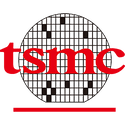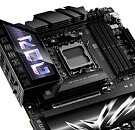
TSMC Faces $1 Billion Fine from US Government Over Shipments to Huawei
TSMC is confronting a potential $1 billion-plus penalty from the US Commerce Department after inadvertently fabricating compute chiplets later integrated into Huawei's Ascend 910 AI processor. The fine, potentially reaching twice the value of unauthorized shipments, reflects the scale of components that circumvented export controls limiting Chinese access to advanced semiconductor technology. The regulatory breach originated in late 2023 when TSMC processed orders from Sophgo, a design partner of crypto-mining firm Bitmain. These chiplets, which are manufactured on advanced process nodes and contain tens of billions of transistors, were identified in TechInsights teardown analysis of Huawei Ascend 910 AI accelerator, revealing a supply chain vulnerability where TSMC lacked visibility into the components' end-use.
Upon discovery of the diversion, TSMC immediately halted Sophgo shipments and engaged in discussions with Commerce Department officials. By January, Sophgo had been added to the Entity List, limiting its access to US semiconductor technology. A Center for Strategic and International Studies report revealed that Huawei obtained approximately two million Ascend 910B logic dies through shell companies that misled TSMC. Huawei's preference for TSMC-made dies was due to manufacturing challenges in domestic chip production. This incident has forced TSMC to strengthen its customer vetting protocols, including terminating its relationship with Singapore-based PowerAIR following internal compliance reviews. The enforcement process typically begins with a proposed charging letter detailing violations and penalty calculations, followed by a 30-day response period. As Washington tightens restrictions on AI processor exports to Chinese entities, semiconductor manufacturers are under increased pressure to implement rigorous controls throughout multinational supply chains.
Upon discovery of the diversion, TSMC immediately halted Sophgo shipments and engaged in discussions with Commerce Department officials. By January, Sophgo had been added to the Entity List, limiting its access to US semiconductor technology. A Center for Strategic and International Studies report revealed that Huawei obtained approximately two million Ascend 910B logic dies through shell companies that misled TSMC. Huawei's preference for TSMC-made dies was due to manufacturing challenges in domestic chip production. This incident has forced TSMC to strengthen its customer vetting protocols, including terminating its relationship with Singapore-based PowerAIR following internal compliance reviews. The enforcement process typically begins with a proposed charging letter detailing violations and penalty calculations, followed by a 30-day response period. As Washington tightens restrictions on AI processor exports to Chinese entities, semiconductor manufacturers are under increased pressure to implement rigorous controls throughout multinational supply chains.




















































